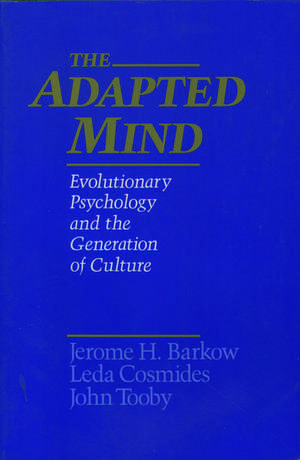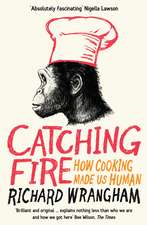The Adapted Mind: Evolutionary Psychology and the Generation of Culture
Jerome H. Barkow, Leda Cosmides, John Toobyen Limba Engleză Paperback – 11 ian 1996
Preț: 493.38 lei
Preț vechi: 676.14 lei
-27% Nou
Puncte Express: 740
Preț estimativ în valută:
94.42€ • 102.53$ • 79.31£
94.42€ • 102.53$ • 79.31£
Carte tipărită la comandă
Livrare economică 11-17 aprilie
Preluare comenzi: 021 569.72.76
Specificații
ISBN-13: 9780195101072
ISBN-10: 0195101073
Pagini: 688
Ilustrații: halftones, line drawings, tables
Dimensiuni: 156 x 234 x 35 mm
Greutate: 0.91 kg
Ediția:Revised
Editura: Oxford University Press
Colecția OUP USA
Locul publicării:New York, United States
ISBN-10: 0195101073
Pagini: 688
Ilustrații: halftones, line drawings, tables
Dimensiuni: 156 x 234 x 35 mm
Greutate: 0.91 kg
Ediția:Revised
Editura: Oxford University Press
Colecția OUP USA
Locul publicării:New York, United States
Cuprins
J. Tooby & L. Cosmides: Introduction; Part I: Theoretical framework: J. Tooby & L. Cosmides: The psychological foundations of culture; D. Symons: On the use and misuse of darwinism in the study of human behavior; Part II: Cooperation: L. Cosmides & J. Tooby: Cognitive adaptations for social exchange; W.C. McGrew & A.T.C. Feistner: Two non-human primate models for the evolution of human food-sharing: chimpanzees and callitrichids; Part III: The psychology of mating and sex: D. Buss: Mate preference mechanisms: consequences for partner choice and intrasexual competition; B. Ellis: The evolution of sexual attraction: evaluative mechanisms in women; M. Wilson & M. Daly: The man who mistook his wife for a chattel; Part IV: Parental care and children: M. Profet: Pregnancy sickness as adaptation: a deterrent to maternal ingestion of teratogens; J. Mann: Nurturance or negligence: maternal psychology and behavioral preference among preterm twins; A. Fernald: Human maternal vocalizations to infants as biologically relevant signals: an evolutionary perspective; M.J. Boulton & P.K. Smith: The social nature of play fighting and play chasing: mechanisms and strategies underlying cooperation and compromise; Part V: Perception and language as adaptations: S. Pinker & P. Bloom: Natural language and natural selection; R.N. Shepherd: The perceptual organization of colors: an adaptation to regularities of the terrestrial world?; I. Silverman & M. Eals: Sex differences in spatial abilities: evolutionary theory and data; Part VI: Environmental aesthetics: G.H. Orians & J.H. Heerwagen: Evolved responses to landscapes; S. Kaplan: Environmental preference in a knowledge-seeking, knowledge-using organism; Part VII: Intrapsychic processes: R.M. Nesse & A.T. Lloyd: The evolution of psychodynamic mechanisms; Part VIII: Understanding evolutionary new cultural forms: J.H. Barkow: Beneath new culture is old psychology: gossip, class, and the environment.
Recenzii
This book is a rare exception, a volume of fresh and original research of momentous significance that is written in such a way that ordinary mortals can immediately join the debate.
... a massive tome that throws considerable light on a number of issues ... The Adapted Mind is a very significant contribution to the field of evolutionary thinking on human psychology and culture. It brings together many well-written and scholarly chapters that do much to articulate the salient issues and give state of the art overviews.
one cannot afford to ignore it
a collection of eighteen papers by twenty-five authors which sum up and illustrate much of the best of our knowledge in the field of evolutionary psychology
... a massive tome that throws considerable light on a number of issues ... The Adapted Mind is a very significant contribution to the field of evolutionary thinking on human psychology and culture. It brings together many well-written and scholarly chapters that do much to articulate the salient issues and give state of the art overviews.
one cannot afford to ignore it
a collection of eighteen papers by twenty-five authors which sum up and illustrate much of the best of our knowledge in the field of evolutionary psychology












